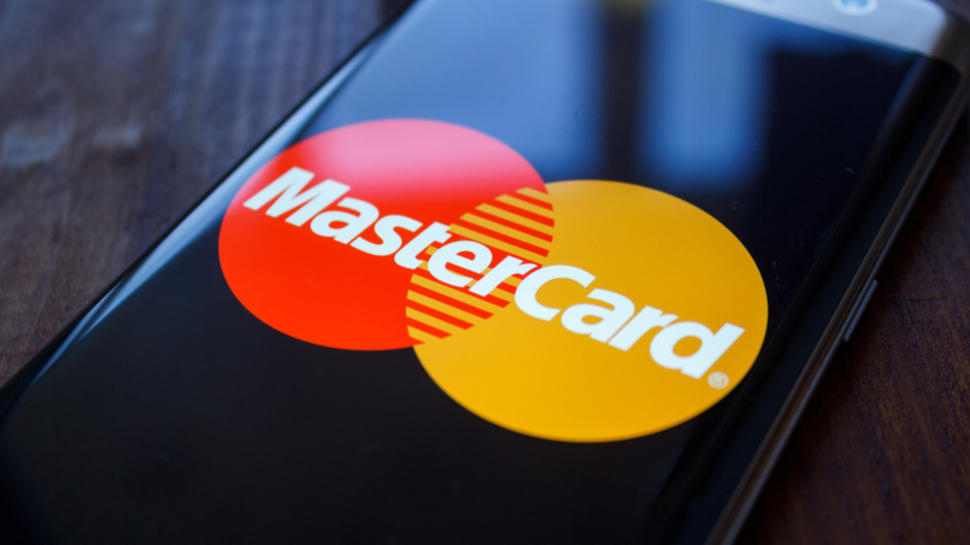Mastercard: why smart payments can help us all do digital better
Smarter payments could mean a smart, better connected world

As the world around us becomes smarter and more connected, having a quick and easy, yet also secure way to pay for goods and services is crucial.
Mastercard has overseen a major investment in developing the next generation of payment methods in recent years, harnessing its wealth of expertise to produce new and exciting blends of technology and convenience.
To find out more, TechRadar Pro spoke to Jorn Lambert, Mastercard’s Executive Vice President, Digital Solutions at MWC 2019.
- Mastercard targets major blockchain breakthrough
- What is the IoT? Everything you need to know
'Doing digital better'
With such a notable payments heritage, Mastercard’s presence at MWC may seem odd, but the simple fact is that more and more people are choosing to make payments these days with a mobile device.
“We've really driven an emphasis on giving consumers more ways to pay, and providing value in terms of how consumers can apply the payments in different use cases,” says Lambert, noting that many shoppers these days will leave the house without a traditional payment card.
"We need to do digital better,” he adds, “our view is that digital will get us to very different categories...that maybe didn't even exist before.”

One of the main concerns of this increasingly technological space remains security, especially as the payments infrastructure can include items such as petrol pumps, solar panels and vending machines.
Sign up to the TechRadar Pro newsletter to get all the top news, opinion, features and guidance your business needs to succeed!
It’s clear that security remains a key focus for Mastercard, which has invested heavily into protocols such as tokenisation and biometrics, including partnering with Microsoft on the latter.
The latter is an increasingly vital research priority as the field of biometrics moves beyond simple fingerprint or facial scans to encompass behavioural biometrics - as Lambert says, “no one wants to do PINs on devices any more.”
“It's important that we stay ahead of the curve,” he adds, “the last thing we want is that in this frenzy for innovation, we don't bring consumers along and they lose trust.”
Lambert explains how Mastercard is now able to score a transactions on a number of user-centric criteria, such as the way they move their mouse, or the way the look at their mobile device screen, in order to offer an extra layer of security.
"What we shouldn't forget is that security needs to underpin everything,” Lambert notes. “People care a lot about where their data is, they care a lot about their internet connection, they care a lot more about where their money is - we're uncompromising on that, because it's so easy for us to lose the trust of our customers if something goes astray.”
Changes
With homes and cities getting smarter by the day, it’s clear that the payments industry can play a major part in digital transformation across the world.
Lambert highlights “structural changes” such as the growth of pay-as-you-go desk space, or rentable bicycles or electric scooters as the sort of change that a company like Mastercard is perfectly poised to help with.
But the wealth of use cases available in all kinds of markets means that payments can also greatly assist users around the globe - with Mastercard particularly looking to help the two billion people in developing countries that could benefit from digital transformation initiatives.
“It's not just about the tech or the innovation, but are we bringing people along, and as an industry providing the integrity that we need,” Lambert says.
“We sometimes forget the whole purpose of digital transformation and AI and IoT is to make people's lives better - so if we find the right solution for that and don't deliver it, we should think again and question what we're doing.”
- Best ecommerce platform of 2019: get an online store now!

Mike Moore is Deputy Editor at TechRadar Pro. He has worked as a B2B and B2C tech journalist for nearly a decade, including at one of the UK's leading national newspapers and fellow Future title ITProPortal, and when he's not keeping track of all the latest enterprise and workplace trends, can most likely be found watching, following or taking part in some kind of sport.